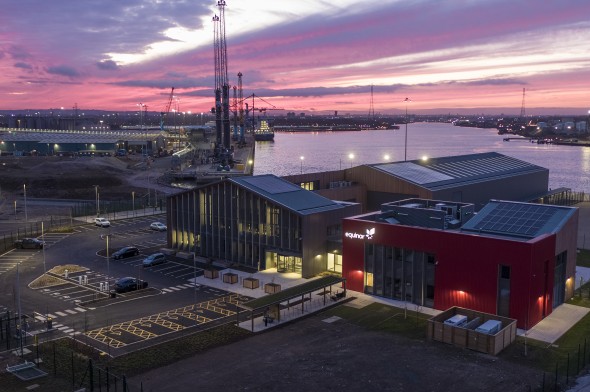
The Port of Tyne has secured a £100 million refinancing package with the UK Infrastructure Bank, Pricoa Private Capital, and Lloyds Bank. This 10-year financing arrangement is a national first for a British major trust port and builds upon the Port of Tyne's strategic focus on green energy and smart logistics. The deal demonstrates the underlying confidence investors have in the Port's business strategy and market-leading position in established and emerging markets, including offshore renewables and the automotive transition. The long-term credit facility will provide the Port of Tyne with a capital structure to continue to deliver its ambitious Tyne 2050 strategy while providing support to develop major infrastructure projects to capitalize on new market opportunities.
The Port of Tyne – which owns and operates one of the UK’s major trust ports – has secured a £100 million refinancing package with the UK Infrastructure Bank, Pricoa Private Capital and Lloyds Bank.
This 10 year financing arrangement is a national first for a British major trust port and builds upon the Port of Tyne’s strategic focus on green energy and smart logistics. The deal demonstrates the underlying confidence investors have in the Port’s business strategy and market-leading position in established and emerging markets including offshore renewables and the automotive transition.
The Port’s new facilities include a £50 million capital fund provided by the Government-owned UK Infrastructure Bank, £45 million of long-dated loan notes from Pricoa Private Capital, with Lloyds Bank continuing to support as an agent and providing a £5 million revolving credit facility. This facility was completed with professional support from Deloitte LLP’s Infrastructure Team, Ashurst LLP and Pinsent Mason LLP.
This long-term credit facility will provide the Port of Tyne with a capital structure to continue to deliver its ambitious Tyne 2050 strategy while providing support to develop major infrastructure projects to capitalise on new market opportunities. The new structure will ensure the Port of Tyne – and the North East region – continues to support the green energy markets of the future and long-term national energy security.
The Port of Tyne, which already contributes £700 million to the North East and UK economy, is home to the O&M base to service Dogger Bank – the world’s largest windfarm – is the second largest car exporting port in the country and supports a growing clean energy cluster. The Port also handles a diverse range of cargoes including containers, manufactured and retail goods, alongside renewables and passenger activities.
As a key supporter of the Government’s Maritime 2050 strategy, the business is set to play an important role in the UK’s long-term future as a maritime nation. The Port is home to the country’s first Maritime Innovation Hub and has recently been awarded funding to develop the Clean Tyne Shipping Corridor – a proposed decarbonised European maritime route. As part of its strategy, the Port is committed to reducing net greenhouse gas emissions to zero by 2030, electrifying its operations by 2040 and becoming a smart port.
Lord Johnson, Minister for Investment, commented: “Regenerating the Port of Tyne will not only help the UK cement its role as a global leader in clean energy technology, but will be essential for leveling up the North East with high skilled, green jobs and local economic growth.”
"The UK Infrastructure Bank has become an integral part of this country’s net zero ambitions, delivering new and innovative ways to achieve sustainable growth.”
Mark Stoner, Chief Financial Officer at Port of Tyne, said:
“This ground-breaking capital facility will help the Port of Tyne accelerate its intentional ambitions plans to support the rapidly expanding and critical green energy and automotive transition markets, attracting international and home-based investment, area regeneration, highly skilled jobs and the associated economic prosperity to the North East region and to the UK more widely.”
 KEYFACT Energy
KEYFACT Energy